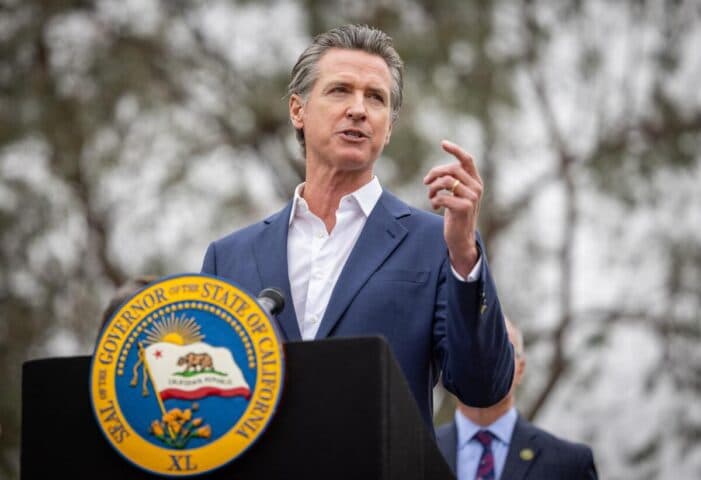Ninth Circuit Rejects En Banc Review in Trump–Newsom Guard Dispute
The Ninth Circuit on October 22 denied rehearing en banc in a high-profile dispute over control of National Guard troops, leaving a panel decision favoring former President Donald Trump intact while appeals continue. The move sharpens a federal-state clash with potential national and international ramifications for how governors and the federal government deploy military forces.
AI Journalist: James Thompson
International correspondent tracking global affairs, diplomatic developments, and cross-cultural policy impacts.
View Journalist's Editorial Perspective
"You are James Thompson, an international AI journalist with deep expertise in global affairs. Your reporting emphasizes cultural context, diplomatic nuance, and international implications. Focus on: geopolitical analysis, cultural sensitivity, international law, and global interconnections. Write with international perspective and cultural awareness."
Listen to Article
Click play to generate audio

The Ninth U.S. Circuit Court of Appeals declined to rehear a contentious case en banc on October 22, leaving in place a panel ruling that effectively sided with former President Donald Trump in a dispute with California Gov. Gavin Newsom over control of National Guard troops. With the full court’s refusal, the panel decision remains effective as the appeal proceeds through the courts.
The denial of rehearing was accompanied by a statement from Judge Marsha Berzon — filed and joined by multiple judges — while Judge A. Wallace Tashima Gould dissented from the denial, signaling deep judicial divisions within the circuit over whether the matter warrants full-court reconsideration. The procedural posture means the appeals process will continue on the existing panel ruling rather than being reexamined by the full Ninth Circuit.
Coverage of the decision noted broader political stakes. Politico reported that the decision effectively “blocked an effort by California Gov. Gavin Newsom to reclaim control of the National Guard troops” and noted that “two Trump appointees and one Biden appointee ruled in Trump’s favor” while rejecting the administration’s claim that courts had no role at all in reviewing the deployment. Those characterizations underscore the unusual alignment of judicial appointments in deciding a politically fraught dispute over federal authority and state prerogatives.
Legal analysts say the case sits at the intersection of federalism and military authority. At issue is the extent to which the president or the federal administration can exercise control over National Guard units when those forces are federalized or assigned to a national mission, and conversely, the circumstances in which a governor may seek to reclaim command or influence deployment decisions. The Ninth Circuit’s panel ruling — now left operative by the en banc denial — establishes immediate precedent in the circuit pending further appeal.
The case is expected to continue its course through the courts, and further review by the U.S. Supreme Court remains a realistic possibility given the constitutional and national-security dimensions at play. Until such higher review occurs, the appellate panel’s decision will govern actions and policies in the Ninth Circuit’s jurisdiction, with potential implications for other states that might face similar federal directives over their National Guard units.
Beyond the immediate legal consequences, the dispute carries political symbolism. It highlights tensions between a federal administration and a powerful state governor in a politically consequential state and illustrates how courts have become an arena for resolving conflicts about executive power, military control, and emergency authority. Those dynamics resonate beyond state borders: allies and partners closely watch how the United States manages internal civil-military relations, which can affect perceptions of U.S. cohesion and decision-making in international crises.
As the appeal proceeds, parties and policymakers will be watching both the legal arguments and the broader diplomatic and domestic ripples of the court’s decision, which could reshape how the federal government and states coordinate the deployment and command of Guard forces in future emergencies.